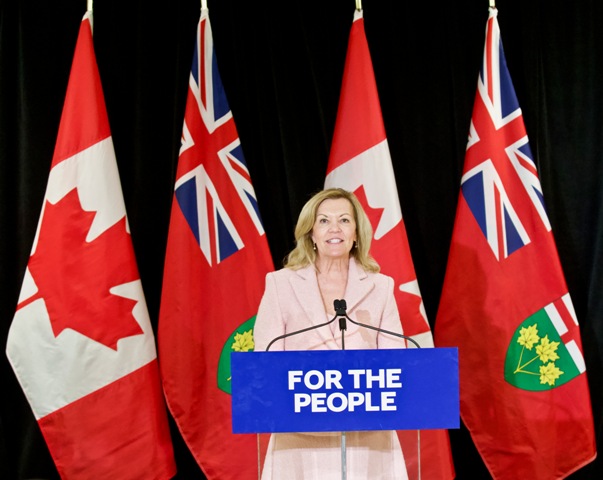Investments will build more than 3,000 new hospital beds
The Voice of Canada
Hallway health care is a significant problem that continues to strain Ontario’s hospitals and health care system. Across Ontario, too many patients are left waiting too long for the care they need. That’s why Ontario’s Government for the People is taking a major step forward in its plans to end hallway health care by investing $27 billion over the next 10 years in essential hospital infrastructure projects across the province. These investments will build critical frontline care capacity by creating more than 3,000 new hospital beds.
“With these long-overdue infrastructure investments, we will ease the crippling pressures plaguing Ontario’s hospitals and empower nurses and doctors to provide better, faster care,” said Christine Elliott, Deputy Premier and Minister of Health and Long-Term Care. “These investments make crystal clear our government’s commitment to protect what matters most to Ontarians, including our public health care system.”
To mark the government’s landmark investments, Elliott was joined by caucus colleagues, hospital staff, frontline care providers and patient and family advisors. Together they also celebrated the grand opening of Unity Health Toronto – St. Joseph’s Health Centre’s newly expanded mental health emergency services unit. With these much-needed infrastructure investments, Ontario can ease pressures on hospitals as the province builds a modern, sustainable and integrated public health care system focused on the needs of patients.
“The new mental health emergency services unit is a perfect example of the types of health infrastructure projects that will help build capacity, provide specialized supports and help end hallway health care in Ontario,” said Elliott. “Every part of our plan to end hallway health care and build a modern, sustainable and integrated health care system starts and ends with the patient.”
In addition to investments in creating more beds, the government is making renewal investments to ensure that long-neglected facilities across the province are properly maintained.
“As an emergency physician, I have witnessed the challenges a busy emergency department can bring for patients seeking care for a mental health or addictions crisis,” said Dr. Tim Rutledge, president and CEO of Unity Health Toronto, which consists of St. Joseph’s, Providence Healthcare and St. Michael’s Hospital. “With this new mental health unit at St. Joseph’s Health Centre, we now have a facility that will help us provide the very best for our patients with compassion and human dignity at the forefront.”
The government is taking a comprehensive approach to ending hallway health care, including additional investments in increased hospital operational funding, mental health and addiction services and building long-term care beds, as well as home care funding and community care funding, both of which will let Ontario’s seniors live at home longer.




